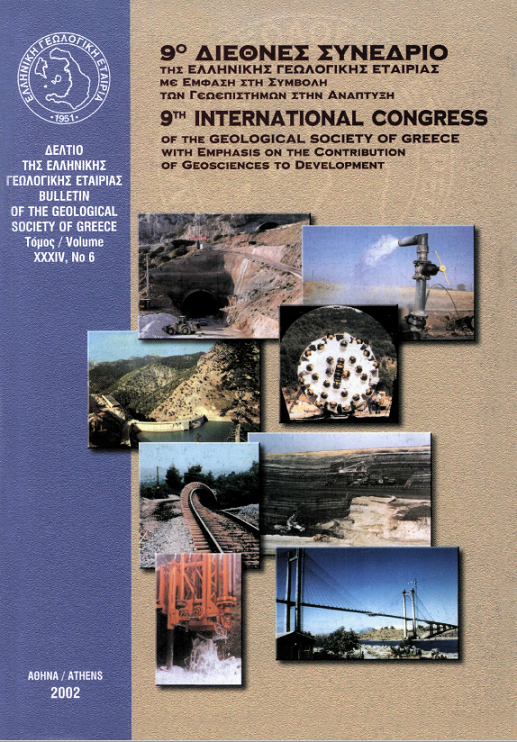Η συμβολής της Γεωχημείας στην εκτίμηση περιβαλλοντικών συνθηκών σε εδαφικά και υδατικά συστήματα και στην εφαρμογή μεθοδολογιών εξυγίανσης
Περίληψη
Κυρίαρχη εφαρμογή της γεωχημείας σήμερα αποτελεί η εκτίμηση των περιβαλλοντικών συνθηκών που επικρατούν σε διάφορα περιβάλλοντα (π.χ. εδαφικά ή υδατικά) και η εφαρμογή μεθοδολογιών εξυγίανσης τους. Για το σκοπό αυτό, εκτός από τον καθορισμό των επιπέδων και την πηγή προέλευσης των ρύπων μελετώνται οι βιογεωχημικές διεργασίες και καθορίζεται η συμπεριφορά των ρύπων σε ειδικότερα περιβάλλοντα (π.χ. ρυθμός εμπλουτισμού ή αραίωσης στο χώρο και στο χρόνο, διασπορά κ.τ.λ.). Με βάση τα αποτελέσματα γεωχημικών ερευνών εφαρμόζονται μεθοδολογίες εξυγίανσης των περιβαλλόντων και παρεμπόδισης εισόδου βλαπτικών στοιχείων στη τροφική αλυσίδα, ενώ λαμβάνονται αποφάσεις για την ορθολογική διαχείριση υγρών και στερεών αποβλήτων. Ακόμα λαμβάνονται μέτρα για την προστασία της υγείας του ανθρώπου με τον καθορισμό κριτηρίων ποιότητας του καλλιεργήσιμου εδάφους, του νερού άρδευσης και ύδρευσης, των πήλινων οικιακών σκευών κ.α.
Λεπτομέρειες άρθρου
- Πώς να δημιουργήσετε Αναφορές
-
ΒΑΡΝΑΒΑΣ Σ. Π. (2002). Η συμβολής της Γεωχημείας στην εκτίμηση περιβαλλοντικών συνθηκών σε εδαφικά και υδατικά συστήματα και στην εφαρμογή μεθοδολογιών εξυγίανσης. Δελτίο της Ελληνικής Γεωλογικής Εταιρείας, 34(6), 2207–2217. https://doi.org/10.12681/bgsg.16863
- Ενότητα
- Κεντρικές και Θεματικές Ομιλίες

Αυτή η εργασία είναι αδειοδοτημένη υπό το CC Αναφορά Δημιουργού – Μη Εμπορική Χρήση 4.0.
Οι συγγραφείς θα πρέπει να είναι σύμφωνοι με τα παρακάτω: Οι συγγραφείς των άρθρων που δημοσιεύονται στο περιοδικό διατηρούν τα δικαιώματα πνευματικής ιδιοκτησίας επί των άρθρων τους, δίνοντας στο περιοδικό το δικαίωμα της πρώτης δημοσίευσης. Άρθρα που δημοσιεύονται στο περιοδικό διατίθενται με άδεια Creative Commons 4.0 Non Commercial και σύμφωνα με την οποία μπορούν να χρησιμοποιούνται ελεύθερα, με αναφορά στο/στη συγγραφέα και στην πρώτη δημοσίευση για μη κερδοσκοπικούς σκοπούς. Οι συγγραφείς μπορούν να: Μοιραστούν — αντιγράψουν και αναδιανέμουν το υλικό με κάθε μέσο και τρόπο, Προσαρμόσουν — αναμείξουν, τροποποιήσουν και δημιουργήσουν πάνω στο υλικό.



